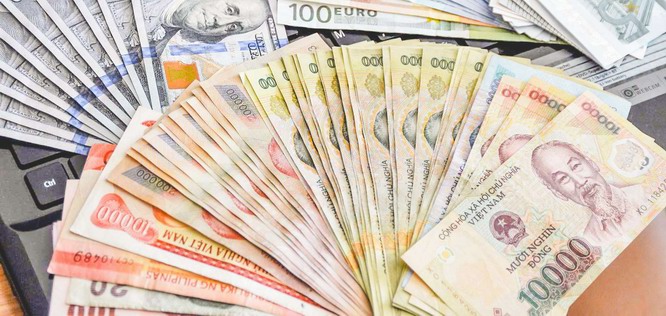Vietnam currency
The local currency of Vietnam is the dong, which refers to ‘d’ or ‘vnd’. Among them, small denominations include paper notes of VND 1000; 2000; 5000, while bigger ones include polymer notes of VND 10,000; 20,000; 50,000; 100,000; 200,000; 500,000 with Ho Chi Minh’s picture is on every banknote. The interesting thing when you are in Vietnam and change your money is that you suddenly find yourself VND millionaire.

Currency use
Vietnam dong is the first and theoretically the only official currency for any
common transaction in the country. According to government regulation, all
prices for services and commodities must be quoted in VND; foreign currencies
can be only dealt with through authorized exchange bureaus or with special
permission.
In fact, USD is considered the second currency in tourist places, and with the
commonness of EUR, AUD, BP… goes on respectively. Places like restaurants, bars,
travel agencies, or souvenir shops in tourist places sometimes accept both USD
and VND and prices might be quoted in both types of currency so, the best
solution is to carry both of them. Out of tourist sites or in remote areas, only
Vietnam dong is accepted.
Remember to stock up enough small bills for your petty deals when you around.
Additionally, it is better to check all bills to make sure they do not have any
tears in the corners or look too tatty, as local restaurants and shops will not
accept them. Also, try to change just enough money at one time following your
plan to avoid a large wad of notes. At the present, the largest denomination is
currently 500,000 dong. The notes of 20,000 dong look quite similar but the
value is really a big gap. Keep big notes separate from other smaller notes to
avoid confusion then.
Exchange money
The exchange rate is rather fluctuant due to inflation or other effects
including government regulation that was issued methodically at the time.
Recently, the exchange rate for 1 USD is around 24.000 to 25.500 VND.
Exchanging money in Vietnam is quite convenient, with many reliable locations
available. Major banks like Vietcombank, BIDV, and Techcombank offer currency
exchange services with competitive and secure rates. You just need to bring your
passport to any branch of these banks. Additionally, international airports such
as Noi Bai (Hanoi) or Tan Son Nhat (Ho Chi Minh City) have exchange counters.
Although the rates at airports may not be as favorable as at banks, they remain
a convenient option when you first arrive in Vietnam.
Besides reputable locations, some travelers opt to exchange money at gold shops
or on the black market to get better rates. However, these places carry many
risks, such as receiving counterfeit money, being scammed, or facing fines for
exchanging at unauthorized locations. Vietnam’s laws strictly regulate currency
exchange, allowing only licensed establishments to operate legally. Therefore,
even if the rates are attractive, exchanging money in these places is not a safe
option.
ATMs and Credit cards
In cities and tourist places, you can easily find ATMs from different banks at
many corners of the streets. The most common and well-represented banks include
Vietcombank, Argribank, Vietinbank, Sacombank, SEAbank, and so on. HSBC, ANZ,
Citibank, or some other foreign banks are less common but can be found in big
cities. Withdrawals are issued in dong, and most Vietnam banks offer multiple
withdrawals with a limit of 2,000,000d each time. ANZ offers a far higher limit
depends on your type of card.
The ATM fees are 20,000 or 40,000 per transaction depending on what bank you
use. You can use your credit card (Visa, Master Card, Plus, Cirrus, JCB, etc.)
to withdraw cash from ATM anytime in a day. However, remember that a 3% service
fee is normally charged per transaction. Amex is accepted somewhere but the fee
is a little bit higher (around 4%).
You cheques have now become less common since using ATMs is much more
convenient. You need to present your passport and pay the transaction fee of
around 2-5% per transaction to get cash at authorized foreign exchange outlets
and banks. When traveling abroad, besides travelers' cheques, you should also
bring along some US dollars in hand. If your cheques are in different currencies
(not US dollars), they may be rejected in some cities.



